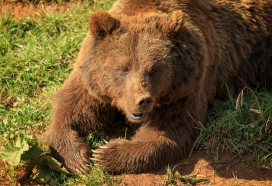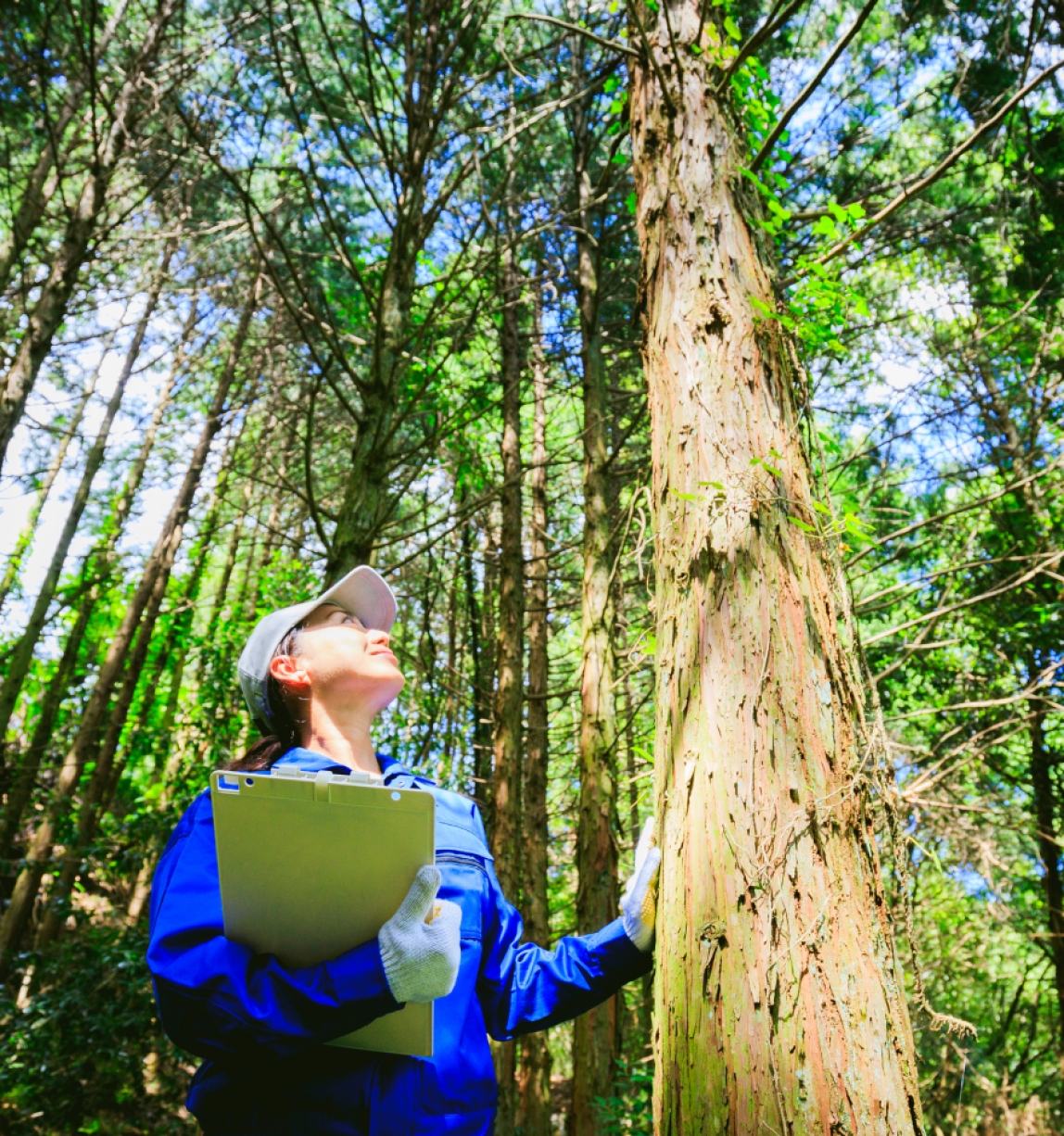
FSC has joined 100+ NGOs supporting the #Together4Forests movement.
About FSC
As the leader in sustainable forestry, FSC is trusted to protect forests for all, forever.
Learn more about FSC >Who we are
Our historyGlobal LeadershipBoard of DirectorsPolicy and Standards CommitteePermanent Indigenous Peoples CommitteeLocal FSC TeamsOur work
Why forests matterFSC’s global strategyHow the FSC system worksGovernanceFSC solutionsExplore certification
Show your commitment to responsible forestry by becoming FSC certified.
Learn more about certification >What the FSC labels mean
Every FSC label stands for sustainable sourcing that puts forests and people first.
Learn more about our labels >Earth observation
We’re harnessing the power of satellite data to help auditors monitor forest health.
Learn more >FSC Trace
We are using blockchain to ensure certification compliance throughout the supply chain.
Learn more >Wood identification
We're piloting cutting-edge technology to trace and prove the origins of wood.
Learn more >FSC standards
Our rigorous forest certification standards are the foundation of the FSC system.
Learn more >Current processes
See which policies, standards and procedures are currently being strengthened.
Learn more >System integrity
We’re committed to upholding the credibility and transparency of the FSC system.
Learn more >Open investigations
Explore our active investigations into organizations who may threaten the FSC system.
Learn more >By Industry
ConstructionFashionFibreFurnitureNatural rubberPaper & packagingRetail & ecommerceWoodOther forest productsCertification and licence options
Find the certification or licence that’s right for your business.
Start now >Other Related Links
Chain of Custody CertificationPromotional LicenceProject CertificationUse FSC’s logoBy Solution
Verified Impact for businessesVerified Impact for forest managersEU Regulation on Deforestation-free Products (EUDR)Forest managers
Ensure the long-term health and viability of your forest with FSC certification.
Learn more >Managers of small, low-intensity, or community forests
FSC certification isn’t just for global corporations. We have solutions to fit any forest.
Learn more >Governments
Make real progress toward your sustainability goals and secure the future of our forests.
Learn more >Become a member
Make your commitment to responsible forest stewardship official by becoming an FSC member.
Learn more >Members portal
FSC’s collaboration platform for current members.
Learn more >Join us at the General Assembly
26-31 October 2025 | Panama
Participate in FSC’s highest decision-making process and help influence the future of our forests
Join our mission
Put your passion to work creating a better future for forests and people worldwide.
Explore current opportunities >Learn more about FSC
What the FSC labels meanWhy forests matterStories from the forestHow the FSC system worksFSC solutionsFSC’s 2021-2026 global strategyNews & Impact
Stay up to date with the latest from FSC and the world of sustainable forestry.
See all news >Other Related Links
See all storiesThe Unsung Heroes of the ForestsPress Corner
Learn more about upcoming media engagement opportunities and find relevant media resources.
Learn more >Blog
Enhance knowledge on forests, forest management and other nature solutions
Learn more >Other Related Links
Sustainable forestryForest managementWhy forests matterLearning Centre
Position statementsPodcastsVideosAnnual reportConsumer researchE-trainingCampaignsTools & Resources Home
FSC offers a variety of tools and resources to help you work with our organization.
See the complete list >Find all documents related to FSC’s standards, policies, and procedures.
Consultation PlatformOpen for feedback: Help strengthen FSC’s standards, procedures and policies up for review.
E-TrainingLearn about the FSC system through deep dives on relevant topics.
Certificate SearchAccess the latest information on FSC certificate holders.
For FSC members: Access our primary platform for collaboration.
FSC Brand HubFor FSC certificate holders and promotional licence holders. Access FSC trademarks, campaigns, marketing assets, and other resources.
Trademark PortalFor FSC certificate holders and promotional licence holders. Access the legacy Certificate Status Watch.
For FSC certification holders and licence holders. FSC Trace is a secure platform that ensures seamless compliance verification throughout the supply chain.
FSC Risk HubAssess, visualize, and mitigate risks in forestry sourcing with our risk assessments dashboard.
Choose from the selection of the newest stories and documents below.
FSC has joined 100+ NGOs supporting the #Together4Forests movement.
The FSC Ecosystem Services Procedure has helped Maderacre verify its positive impacts on biodiversity and carbon.
Companies committed to sustainable forest management in the Congo are doing their part to advance the life of Indigenous Peoples, like the Baaka, with dignity.


Researchers warned about the effects of deforestation on human health long before the COVID-19 epidemics started. As decision-makers start looking at measures to prevent new viruses from spreading, some solutions are already available. Sustainable forestry is one of them.
Over the past decades, humans have modified their forest ecosystems and increased their exposure to wild animals through global wildlife trade and expansion projects. An example of this is the gain of farming lands through the clearing of tropical forests. As a negative consequence of this, mankind is now more and more affected by diseases of wildlife origins.
In 2001, a scientific study indicated that 75 per cent of all infectious diseases emerging in the last 50 years came from wildlife. Other research later linked new infectious diseases to deforestation. Prior to COVID-19, various Ebola outbreaks affected West Africa, the largest of which occurred between 2014 and 2016. Scientists found a strong correlation between forest loss and the timings of Ebola outbreaks. They believed fruit bats spread the disease in 2014 by approaching human settlements in search of food.
As deforestation destroys their habitats, many wild species - including bats, pangolins and apes - come into closer contact with other animals and humans in search of new homes and food. This situation increases animals’ stress levels and their risk of illness. Besides this, many wild species normally self-isolate themselves from contaminated peers to avoid spreading diseases among their communities. When their habitats are destroyed or shrink in size, they find it harder to protect themselves from new viruses and end up infecting their communities and other species.
The Executive Director of the UN Environment Programme, Inger Andersen, recently declared that nature was sending us a message through the coronavirus pandemic and the climate crisis. She added that "our long-term response must tackle habitat and biodiversity loss" as such pressures on the natural world had damaging consequences.
While many people might only just be discovering how protecting forests is crucial for their own health, this is not new information for Indigenous Peoples.
Their way of life has always aimed to preserve the balance of their ecosystems as well as their biodiversity. When they use forest resources – for example to build settlements – they generally do so in a less extractive and damaging way.
Indigenous Peoples are also aware of the curative properties of many plants found in their forests. More than 25 per cent of all drugs used today actually come from forest plants. By losing forests, we are also putting ourselves in danger of losing our medicines.
As traditional Indigenous knowledge is based on sustainability, it could play a critical role in providing solutions to preserve forests and so prevent epidemics. By respecting Indigenous Peoples’ rights and preserving their knowledge, other members of the broader society could learn more about sustainable resource management, which could in turn save money and secure future populations.
The Forest Stewardship Council (FSC) recognized the importance of Indigenous Peoples in the fight against deforestation many years ago.
In 2012, FSC modified its principles and criteria to prioritize the rights of Indigenous Peoples. Principle 3 now requires all FSC-certified forest owners and managers to identify and uphold local Indigenous Peoples’ rights of land ownership, use of land, and territories and resources affected by their management activities. It also asks FSC-certified businesses to obtain the free, prior and informed consent of Indigenous Peoples before undertaking forestry operations on lands that they rely upon. This consent thus recognizes the right of Indigenous Peoples to make free and informed choices about the development of their lands and resources.
Additionally, the FSC International Board of Directors established a Permanent Indigenous Peoples’ Committee in 2013. The committee consists of representatives of Indigenous Peoples from all regions of the world. It is designed to give a voice for Indigenous Peoples inside FSC. The committee members advise the board on all issues related to Indigenous Peoples' involvement in FSC – including policies, standards, and certification.
The organization has also recently launched a new FSC Indigenous Foundation. This strategic and operative unit will develop creative and innovative solutions to support Indigenous Communities across the globe.
Some Indigenous Communities use FSC certification as a tool to manage their land. FSC’s scheme fits with their tradition of protecting the forests they use and conforms to the way they want to live. The new Foundation will also enable Indigenous Peoples to build and guide the sustainable management of their land.
To reach its goals, the Foundation will adapt an Indigenous cultural landscapes approach. Developed by FSC in 2016, this approach acknowledges and appreciates the enduring relationship of Indigenous Peoples with the land, water, fauna and flora, and their spiritual significance to cultural identify, knowledge and livelihoods. But ensuring Indigenous rights are respected is just one of the ways FSC can help.
For instance, FSC’s forest management requires the protection of ecosystem services. These services include preserving biodiversity and clean water sources, or sequestrating carbon. FSC has developed tools to reward participating FSC certificate holders for preserving these natural benefits.
Scientific research in Peru recently showed that FSC-certified low-intensity logging could also help preserve wildlife species in tropical forests. These FSC-certified concessions could even complement protected areas to provide extensive habitat for a wide range of local species.
Many FSC measures can therefore help reduce the risk of pandemics while preserving forests for future generations. FSC certification can first secure the natural habitats wild animals need to keep a safe distance from humans. It can also provide them and local communities with safe and clean areas and ecosystem services. Finally, it can enable companies and societies to benefit from the ancient knowledge of Indigenous communities to learn how to preserve their resources – including plants for medicines – and biodiversity in a safer and healthier way.